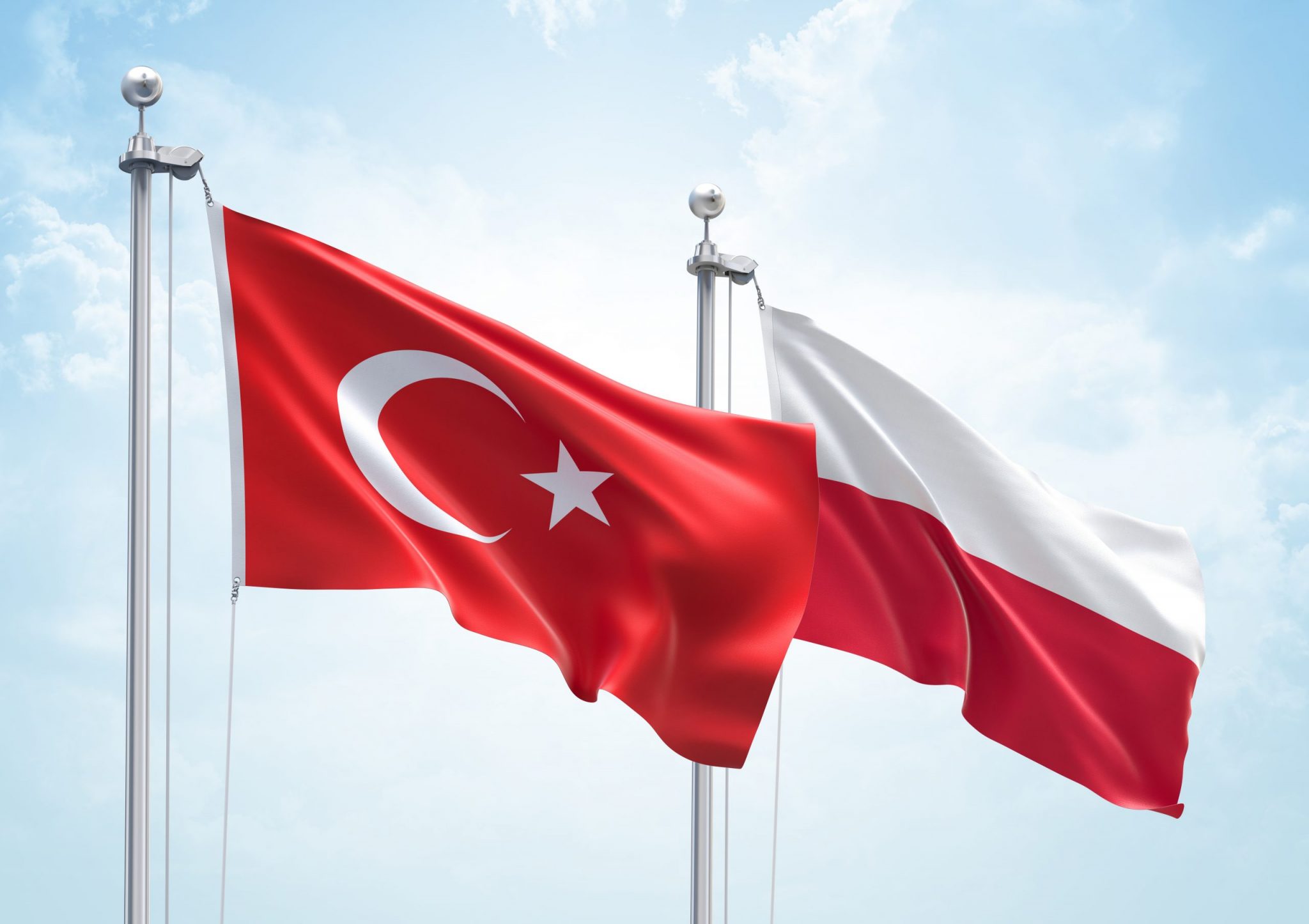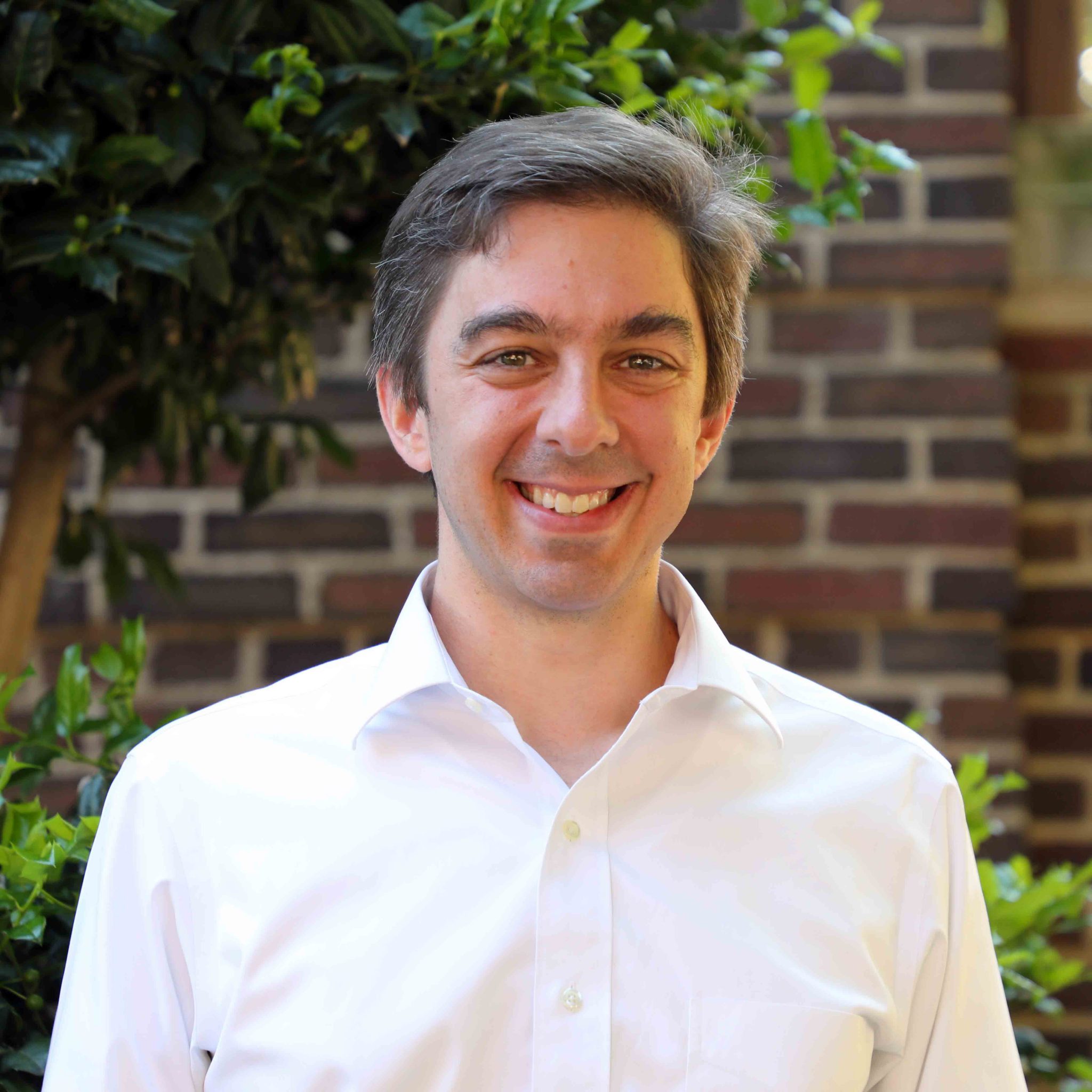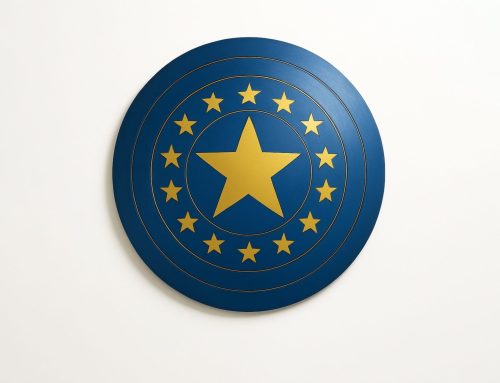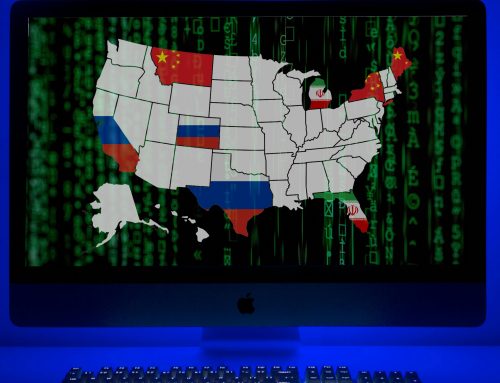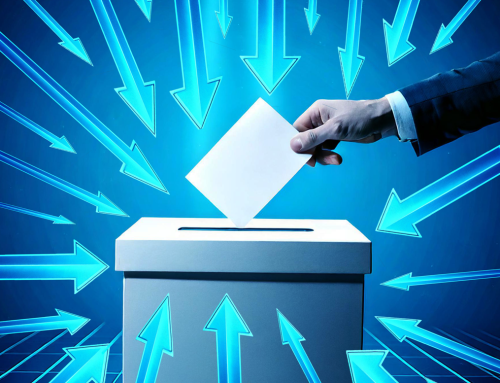Executive Summary
The greatest threats facing the two most consequential elections in and around Europe in 2023—Turkey in May and Poland in the fall—come from autocratic corruption within these two backsliding democracies. Both these countries are ruled by “autocrats” who consolidate and exercise power without deference to legal or democratic constraints. Their tactics are “corrupt” in that they abuse power—including both formal governing levers and informal sway over society carried out by oligarchs and cronies—to advance their personal political interest in keeping their grip on that power.
However, Turkey and Poland arrive at this crossroad from starkly divergent histories and levels of democratic development. Autocratic efforts are about twice as severe in Turkey, which is now completing a long descent into consolidated authoritarianism. Conversely, Poland only fell from the ranks of consolidated democracies in 2015. Each nation bookends the nearly 40% of countries in the world where hybrid regimes hold onto power by administering elections that are “free but not fair”, meaning that voters may cast ballots for candidates of their choice who are genuinely competing but not on anything close to a level playing field. Given how actively “authoritarian diffusion”—the spread of repressive tools and tactics from one authoritarian regime to another—appears to be coursing through anti-democratic forces around the world, and given the geopolitical importance of democratic resilience on Europe’s eastern flank, the success or failure of incumbents using autocratic corruption as a re-election strategy in this year’s Turkish and Polish elections may well reverberate globally.
Turkey: Erdoğan’s Playbook of Cronyism and Repression
After winning free and fair elections in 2002, 2007, and 2011, then-Prime Minister Recep Tayyip Erdoğan began struggling to maintain majority support largely due to Turkey’s declining economic performance (he has since become president after holding a 2017 referendum to alter Turkey’s constitution). In response, he has clung to power through a system of autocratic corruption that includes conducting elections deemed by international monitors to be free but not fair.
Erdoğan called a failed coup attempt aimed at removing him from office in 2016 a “gift from God”, using it as a pretense to crack down on his critics and further consolidate autocratic power. Nine months later, after arbitrarily imprisoning tens of thousands of government and party officials—including the leaders of the pro-Kurdish party—as well as some 150 journalists and many other civic actors, Erdoğan held a constitutional referendum in which 51.4% of voters approved his plan to centralize power in the new executive presidency, at the expense of the parliament and judiciary. Another year after that, in the 2018 election, Erdoğan won 52.6% of the vote and stepped into the newly empowered presidency. Both the 2017 and 2018 contests were marred by autocratic subversions that afforded Erdoğan enormous advantages:
- Perpetual state of emergency: The 2017 referendum and 2018 election were held under a post-coup state of emergency that allowed the government to rule by decree with little oversight. The government used these powers to hold 77,000 people in pretrial detention for alleged links to terrorists, close roughly 200 media outlets, pressure the media that remained open into biased coverage, restrict people’s movements and assembly rights, and otherwise curtail essential freedoms and chill civic participation needed for a competitive election. A month after the 2018 election, the state of emergency lapsed, but eight days later, many of its powers were codified into a new counterterrorism law.
- Government control over public media: The government uses regulatory bodies like the Directorate of Communications and the Radio and Television Supreme Council to pressure broadcasters to toe the party line. In recent years, state-run media groups like the Anadolu Agency and the Turkish Radio and Television Corporation have become political instruments of Erdoğan’s Justice and Development Party (AKP). Government control over editorial decisions became more direct and severe after thousands of staff were purged from public news agencies amid the crackdown that followed the 2016 attempted coup.
- Crony ownership of most private media: Private media in Turkey is increasingly consolidated into the hands of a small number of pro-regime elites. A culminating point in this process came in 2018, when Aydin Doğan, a mogul critical of Erdoğan, sold the country’s largest newspaper, Hurriyet, along with other TV and radio outlets, to a family allied with Erdoğan. Furthermore, private media groups that criticize the regime have long faced regulatory pressure ranging from invasive tax audits to withdrawal of public advertising funds.
- Grand corruption funded by public procurement: In its first decade in power, the AKP loosened competitive bidding rules and oversight through 191 amendments to public procurement law, allowing Erdoğan’s government to privatize $62 billion in state assets and cultivate a loyal network of oligarchs and cronies that relies upon the AKP for public contracts, leniency from law enforcement, and access to cheap capital. In turn, these AKP-friendly business elites steer the proceeds of this grand corruption back into Erdoğan’s re-election campaigns by buying media companies, coercing employees to vote for the AKP, and donating to the AKP’s charities, schools, and NGOs.
- Politicized reshuffling and securitization of polling stations: In the 2017 constitutional referendum and 2018 election, AKP officials made unilateral changes to voting procedures and ballot box chain of custody over the objections of opposition parties, often empowering hand-picked civil servants over political party representatives. Polling places were consolidated and relocated in areas of heavy opposition support, requiring voters to face longer journeys and lines. In the heavily Kurdish southeast, new security protocols at polling places required voters to pass through security checkpoints where armed guards were instructed to check voters’ identification and find those wanted for arrest—an intimidating deterrent from entering.
- Repression of online discourse: For more than 15 years, the Turkish government has blocked access to sites that it accuses of insulting the government or the nation, including YouTube and Twitter. In recent years, though, the regime has taken a much more direct approach to online censorship and the criminalization of speech, introducing a broad social media law in 2022 imposing penalties for spreading disinformation or engaging in hate speech and blocking access to Twitter in the wake of the 2023 earthquake over criticisms of the government response.
At a minimum, Erdoğan can be expected to rerun this playbook of repression and cronyism that he has perfected over two decades in power to ensure that the May 2023 election is unfair. But with Erdoğan polling ten points behind his opponent, he may decide that his only path to political survival involves even more draconian restrictions against free campaigning, discourse, and voting. Such steps could cause this to be the first modern Turkish election that is not only unfair but also unfree, establishing Turkey as a consolidated authoritarian state.
Three threats build upon the sharpest tactics Erdoğan has used since 2016 and, thus, pose the greatest danger to a free election this year. First, Erdoğan could exploit the state of emergency imposed after the February earthquakes to curtail the freedoms of assembly, association, expression, and the press throughout the campaign period, as he did in 2017 and 2018. Second, Erdoğan and his loyalists in the judiciary could continue banning some of his leading political opponents from participating in politics, like the pro-Kurdish party leaders who remain in prison, the potential presidential candidate who was polling the strongest against Erdoğan when he was sentenced to prison and banned from politics, and the pro-Kurdish party that faces a pending court case that could force it to shut down. Finally, Erdoğan could resist the peaceful transfer of power, either by calling his supporters into the streets—like former US President Donald Trump did when falsely calling his 2020 election loss a “coup” and like Erdoğan himself did in 2016 to thwart a real attempted coup—or by getting his apparatchiks in the security services to back him.
Poland: Kaczyński’s Playbook of Unconstitutional Party Takeover
Whereas Erdoğan built his corrupt autocracy behind the scenes for a decade before fully undermining the fairness of elections, the Polish Law and Justice Party (PiS), led by Jarosław Kaczyński, launched a full-frontal assault on constitutional governance in the immediate weeks and months after coming to power in 2015—in what official observers assessed to have been Poland’s last fair election. PiS rapidly laid the groundwork for autocratic backsliding by pumping out vitriolic propaganda and illegally packing Poland’s Constitutional Tribunal. PiS compromised the rule of law and blurred the lines between party, state, and church, which allowed the party to roll out the following autocratic efforts that helped it win unfair national elections in 2019 and 2020:
- Government control over public media: Two months after PiS’s narrow upset victory in the October 2015 parliamentary election, PiS introduced a law undermining the constitutionally empowered media regulator, shifting its powers to a new council controlled by PiS lawmakers. A PiS lawmaker known for unscrupulous propaganda was installed to run Polish public television, and he promptly replaced hundreds of journalists with fringe right-wing media personalities. The public broadcaster turned into an unabashed mouthpiece to promote PiS narratives, candidates, and campaign messaging. Days before elections, the broadcaster runs “documentaries” meant to scare voters about how opposition control would lead to an “invasion” of LGBT people, Islamic terrorists, and German overlords. In 2019, it ran smear campaigns based on candidates’ text messages that were stolen using Pegasus spyware.
- Corruption of campaign finance: PiS lawmakers and state executives engineered a heavily lopsided system of political financing. The ruling party has used publicly funded events for campaign messaging, enacted last-minute changes to campaign finance laws that allowed PiS to spend almost three times as much as its opposition, and raised as much as three-quarters of its campaign war chest from 27 executives that work at state-owned enterprises. The opposition alleges that the latter is a case of PiS secretly directing a state-funded straw donor scheme. Under PiS, law enforcement has declined to investigate that case or other reports of high-level corruption.
- Politicized control over electoral administration: In the lead up to the 2019 parliamentary election, PiS enacted a law taking the power to manage elections away from apolitical judges and handing it over to PiS lawmakers and appointees, among other reforms empowering PiS officials to determine the validity of election results. When PiS lost its majority in the upper house in 2019, it tried and failed to get the Supreme Court to recount and overturn the six races it lost. When the 2020 election coincided with the outbreak of the COVID-19 pandemic and PiS was polling strongly, Kaczyński tried to hastily stand up a mail-only voting system before canceling the election two days before the vote, all without following constitutional authorities or statutory procedures.
- Instrumentalization of the Catholic Church: International election observers have noted with concern that the campaigning role of the Catholic Church—with PiS events and materials located inside churches—undermines its separation from the Polish state. Church officials sometimes encourage congregants to vote for specific PiS candidates or discourage Poles from electing candidates from other parties. They regularly echo PiS’s campaign messages and anti-LGBT rhetoric, like when the archbishop of Kraków gave a sermon in the heat of the 2019 election season warning that the “red plague” of communism had been replaced by a “neo-Marxist … rainbow plague”. Entities associated with a large Catholic-nationalist media empire have received at least PLN 325 million in public funds since 2015.
Since rising to power in 2015, PiS has attempted to erode the basic foundations of democracy, including by undermining the rule of law, taking over public media, and manipulating election administration. These actions tilted the electoral playing field in PiS’s favor in 2019 and 2020. Despite a surge in sanctions against Poland by the EU for its anti-democratic trajectory, PiS has continued its autocratic efforts to retain power ahead of the 2023 vote, including by enacting unconstitutional legislation aimed at bolstering turnout asymmetrically in PiS strongholds. Poland’s increasing geopolitical importance during the war in Ukraine means Poland’s democratic future is more important than ever, and the fall election will serve as a new challenge to the country’s—and Europe’s—stability.
Conclusion: Domestic Corruption Is the Leading Threat to Sovereign Democracy
Turkey and Poland have very different histories of democratization and have experienced backsliding to differing degrees. But their ruling regimes have perpetrated many similarly corrupt autocratic subversions to stay in power through unfair elections: They have compromised the rule of law through court packing and states of emergency, taken over the media through regulatory capture and cronyism, abused power in campaign finance and election administration, and politicized other power centers like the church and security services.
A further decline into corrupt autocracy for either or both countries would imperil NATO’s strategic position with respect to both Russia and Iran, and threaten the rule of law across Europe, potentially encouraging other would-be authoritarians to step up efforts to undermine democratic institutions in their own countries. At a moment when threats to European sovereignty and integrity are as aggressive as they have ever been in the post-Cold War era, it is essential for the international community to stand with the people of Turkey and Poland as they prepare to defend their democracies from the threats within.

